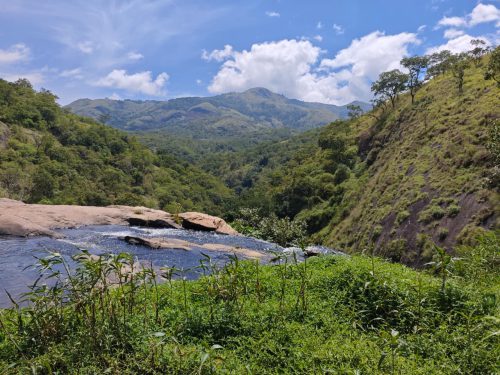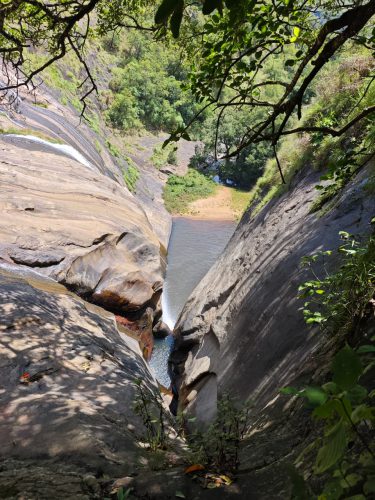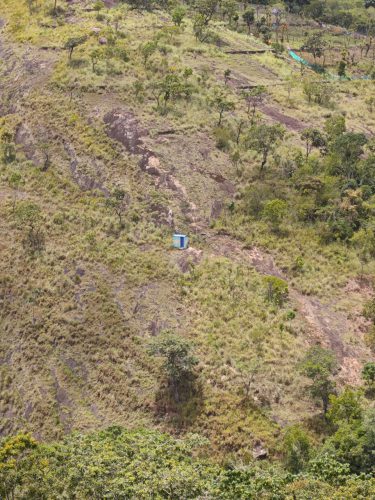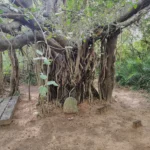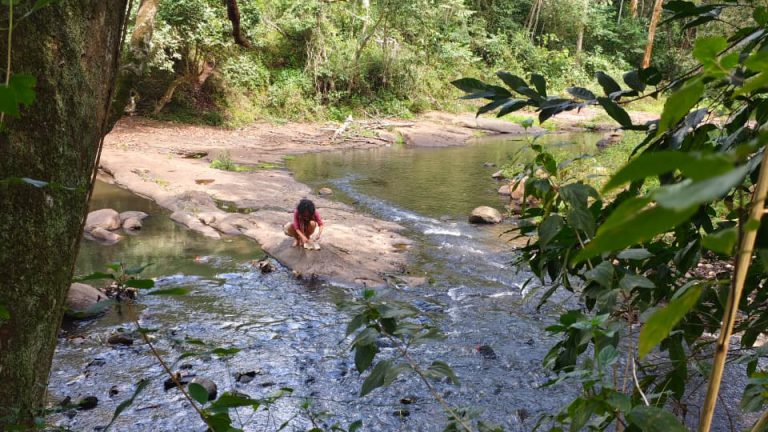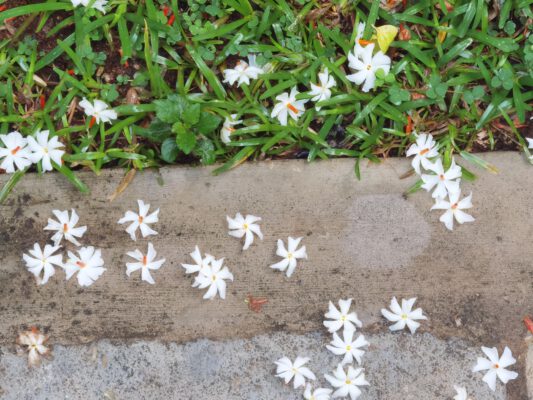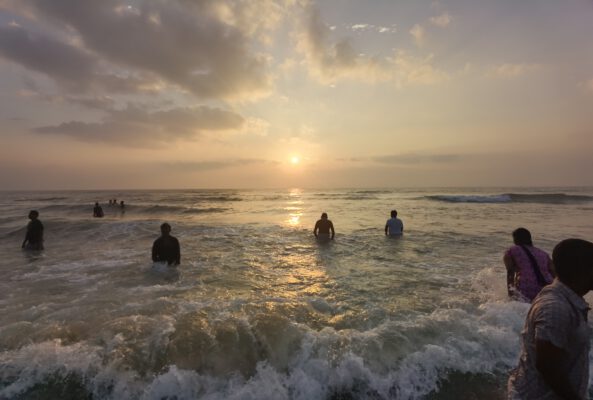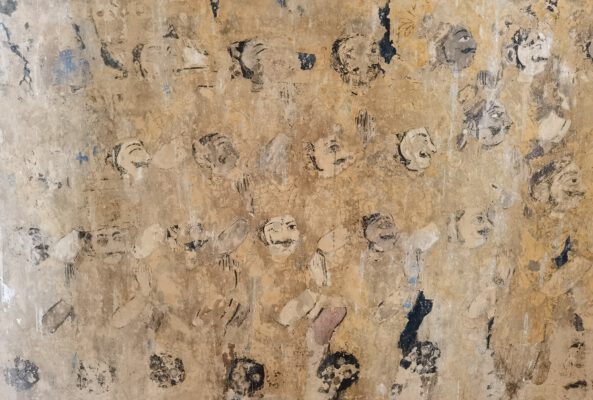Ein koan, that is. I had often heard about these mysterious Zen riddles, which are supposed to lead the mind out of the purely rational and open up new forms of insight. I decided not to read much about it and not to ask others about it. I wanted to get one from a Zen master. During Doksan he asked me a few things about myself. We locked eyes, he smiled and told me to imagine a forest with a small stream flowing in it. When I enter the stream, how do I erase the sound of the babbling? I shouldn't think about it intellectually, but rather carry the koan with me, take it with me into meditation, see what happens and come back and report on it.
The image had an immediate effect on me. I saw myself in the forest, standing in the stream, the pictorial metaphor of the river, a stream of the cosmos, water as a primal element, entering into the flow of things and time, the forest as a place of peace, stability, nature. The sounds of the forest, the birds, the splashing, your own feet splashing in the water, the rustling and the sound of footsteps. Where is my path leading? Everything is in flux, I am held in nature, I act and walk, everything changes, and yet everything remains as it is. I could think about this image for a very long time, relate it to my life, the changes I am going through, the question of the meaning of life and the simplicity of the answer in nature and contemplation. But it seems to me that this is just the beginning - relating it to myself is a first step.
Back to the question: Why should I actually try to switch off the sound? Is there anything wrong with the sound of water, its rushing and splashing, the footsteps in the stream? Who says these sounds are wrong? They don't disturb, they don't distract, they are part of walking. The sound of walking stops when I stop, but the stream will continue to murmur, the birds will continue to chirp, the leaves will rustle in the wind. Is the koan's question perhaps simply that banal? Or does it imply something that can be questioned? Perhaps the assumption that silence is better should be questioned. So why silence? Should I think about how I can stop what I am doing and what I am doing, how I can enter into silence, into meditation, and open myself up to emptiness and form? There is probably already something relevant here.
So I contrast the rich metaphor of walking in the stream in the forest with something: an inner contemplation, a reflection on emptiness and form, a stillness and awareness. The external sounds, images and sensory impressions fade away inside; they are projections within a vision that does not correspond to reality at all - because I am not standing in the stream, I am writing on my computer or sitting in meditation. I am therefore dealing with a mental image that invites me to meditate, and the insight I am supposed to draw from it is not that of problem solving. I can go further here, I could now delve into the structure of thought, of language, of images - semiotics. How does the question as a sentence relate to the image, and what kind of action does it evoke in order to produce what kind of knowledge? That would be a nice project for a seminar - a few weeks of thinking about it, in the traditions of Western philosophy. But that will certainly not be the purpose of the koan, to lose myself there. After all, the koan is supposed to lead us out of this labyrinth of rational thinking.
That was a nice little excursion - the echo of my study of philosophy. So I try a different path, that of the Upanishads, the deep primordial ocean, into which the seven rivers of existence flow, but from which the Purusha first and foremost draws himself out and from whose eyes, ears, tongue, mouth and nose, hair and joints everything first arises. Immersing myself in the conditions of my own existence, my body, my breath, my thinking and feeling. Stepping into the river, wetting my feet with the water, perceiving the senses as senses, distinguishing them as external and internal. And then the task, the question: How can I silence the sound? And why would I want to do that?
Why should I even bother with such a question? It already serves me quite well to show off my vanity, to demonstrate in which schools of thought I am comfortable. Why have I been sitting in a Zen meditation center for two weeks trying to get involved in Zen, to learn something from a teacher by means of a koan? What does he have to show me? Where might the path lead? Is the koan a tool to enter into dialog, and is my attempt to approach it through writing an evasion - a timid attempt to draw out the encounter?
